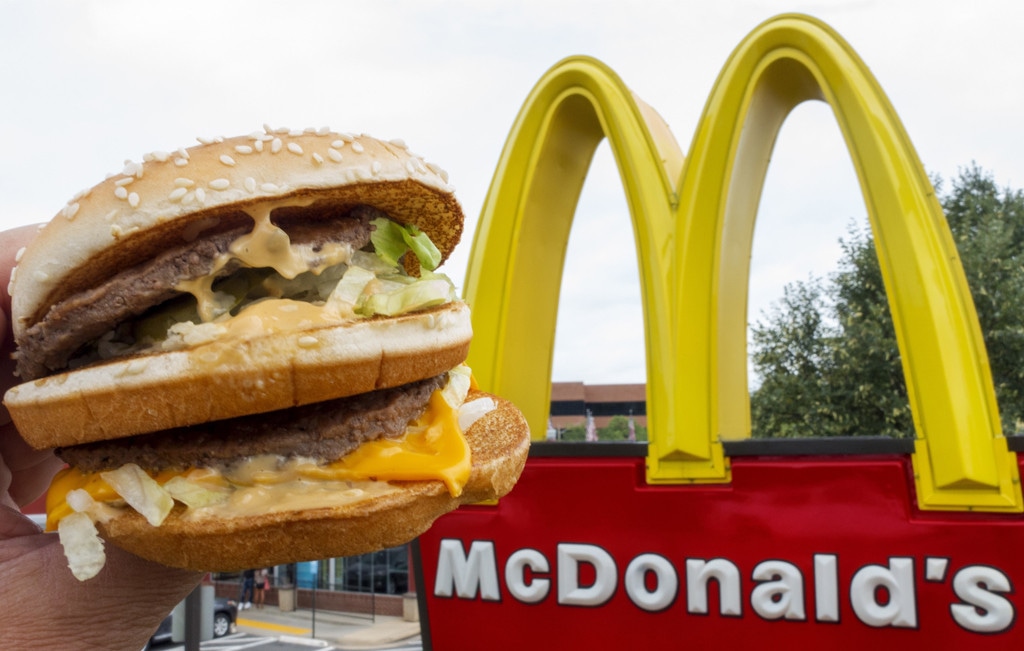 PAUL J. RICHARDS/AFP/Getty Image
PAUL J. RICHARDS/AFP/Getty ImageLook, when it comes to our favorite fast food that's terrible for us, you could tell us it was made out of gasoline, Donald Trump's arm hair and the tears of old people crying over the movie Up and that still wouldn't stop us from eating it. When you love something, you love it blindly, you know?
So if you are a Big Mac devotee, then all this info probably won't change how you feel about it. And we promise we're not trying to put you off McDonald's iconic menu item. However, the info presented is interesting and sort of scary, so we're just passing it along. Do with it what you will.
Fast Food Menu Price researched the ingredients of a Big Mac and has come up with an infographic that shows what happens to your body after you scarf down the burger. It's pretty brutal.
Here are the highlights (lowlights?) from the infographic:
First 10 minutes: "A regular Big Mac (with cheese and sauce) contains 540 calories and raises your blood sugar to abnormal levels...Junk food triggers your brain's reward system by releasing a surge of ‘feel-good' chemicals – such as the neurotransmitter dopamine – which induce feelings of pleasure. This process works in a similar way to that of drugs such as cocaine and contributes to the likelihood of compulsive eating."
After 30 minutes: "A Big Mac contains 970 milligrams of sodium. This huge amount of salt can result in dehydration…Ingesting too much sodium makes it hard for your kidneys to excrete salt. To try and flush the excess salt out of your system, your body then draws water from surrounding tissues. This fluid buildup means that your heart must work harder to pump blood. This causes high blood pressure and can ultimately lead to heart disease and stroke."
After 40 minutes: "The first time you consume a high-calorie meal, your insulin response can reduce your glucose levels making you want to eat more. The high-fructose corn syrup in the Big Mac bun is quickly absorbed by the GI tract, causing insulin spikes and even greater hunger pangs."
After 60 minutes: "Normally the body takes about 24 to 72 hours to digest food. However, hamburgers take a lot more time to digest because they are greasier. It can take more than three days to fully digest a Big Mac…Also, it takes approximately 51 days to digest trans fat. A Big Mac contains 1.5 grams of trans fat. Different studies have proved that trans fats can be linked to heart disease, obesity, cancer and diabetes."
So how true is all of this jarring info? Well, Yahoo talked to nutritionist Lisa Moskovitz, CEO of NewYork Nutrition Group, and she said while this breakdown is accurate it's "somewhat exaggerated."
And like all fattening, high-sodium food, experts agree that it's fine to partake every once in a while. Moderation is key, people! So if you're on the one-Big-Mac-a-day diet, maybe rethink that, mmmkay?